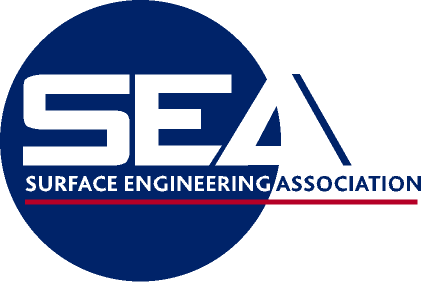A Guide for the Next Generation
Introduction
Surface Engineering is a field that focuses on improving the surface properties of materials through processes like coating, plating, and heat treatment. This can significantly increase the durability, corrosion resistance, and wear resistance of products across various industries such as automotive, aerospace, and manufacturing.
There are diverse career paths within the industry, such as metal treatment, pre-treatments and chemicals, plant and equipment production and supply, wet coatings, powder coatings, and laboratory staff etc.
Why Choose a Career in Surface Engineering?
Variety in Roles: Engineering jobs are diverse and unique. They require creative thought, logical reasoning, and sharp problem-solving skills.
Collaboration: The best solutions to intricate problems come from teamwork. Close collaboration is an essential part of the role.
Making an Impact: Few careers offer the opportunity to have such a direct influence on the world. This could involve contributing to the construction of energy-efficient homes, the development of autonomous vehicles, or the creation of a new type of renewable energy.
Career Opportunities: Engineers are in high demand. Most graduates find themselves in professional employment or further study within six months of graduation.
Satisfying Work: There’s a deep sense of fulfilment that comes from knowing your work is crucial – it keeps the economy running and ensures safety at sea.
Attractive Compensation: The field of engineering typically provides a high earning potential.
Choosing a career in the surface engineering industry can be a rewarding choice, offering a variety of job opportunities, the chance to make a significant impact and a promising career trajectory.
Career Paths in Surface Engineering
There are various roles within any one type of surface engineering facility such as applicators, plating operators, paint sprayers & powder coaters, laboratory staff, steel workers, factory workers, quality inspectors, customer accounts managers, and suppliers.
Educational Requirements and Skills
it’s important to note that the metal treatment/surface engineering industry offers a wide range of roles, many of which are entry-level and do not require specific educational qualifications. These roles provide a great opportunity for individuals to start their careers and learn on the job.
Each position in this industry has its unique requirements and responsibilities. While some roles may require specific skills or educational backgrounds, others might not have such prerequisites. Therefore, it’s always a good idea for candidates to research the specific job title they are interested in to understand if there are any specific skills, qualifications, or experience required.
Remember, even if you don’t have the exact qualifications listed in a job description, don’t be discouraged. Many employers value transferable skills, such as teamwork, problem-solving, and communication, which can be gained from a variety of experiences. Plus, many companies provide on-the-job training to help you learn the specific skills needed for the role.
So, whether you’re just starting out or looking to switch careers, the metal treatment/surface engineering industry has a variety of opportunities available.
A specific degree or certification requirement can depend on the exact role or specialisation within the metal treatment/surface engineering industry. It’s always a good idea to research specific job postings or speak with professionals in the field to get a better understanding of what qualifications are most valued.
How to Gain Entry into the Industry
- Gain relevant knowledge and skills: Familiarize yourself with various surface treatment processes like electroplating, chemical treatment, and hot dipping.
- Networking: Leverage digital platforms like LinkedIn, and attend industry events like conferences, seminars, and workshops. Take a look at our upcoming events here https://www.sea.org.uk/sea-events/
- Job Search Strategies: Regularly check job portals and company websites for openings in the metal treatment/surface engineering industry.
Tailor your resume and cover letter to highlight your relevant skills, experiences, and interests in the field.
Prepare for interviews by researching common questions, practising your responses, and understanding the company’s values and mission.
Conclusion
Choosing a career path is a significant decision, and it’s important to consider all your options. If you’re intrigued by the world of materials and want a career that combines theory with practical application, surface engineering could be the perfect fit. So why wait? Dive in, and you might just discover your passion!
Resources for further reading or learning
Explore relevant journals, research papers, and industry-specific publications to deepen your understanding of surface engineering.
Cranfield University – Surface Engineering (cranfield.ac.uk)
Sheffield Hallam University – Materials and Engineering Research Institute | Sheffield Hallam University (shu.ac.uk)
University of Leeds Surface engineering overview https://eps.leeds.ac.uk/mechanical-engineering-research-functional-surfaces/doc/surface-engineering
University of Nottingham – Centre of Excellence in Coating and Surface Engineering (nottingham.ac.uk)
University of Sheffield – Research Centre for Surface Engineering | Materials Science and Engineering | The University of Sheffield
University of Southampton – Materials and Surface Engineering Research | Engineering | University of Southampton
Materials Process Engineer Master’s Degree Apprenticeship
The apprenticeship qualification for Material Process Engineering is designed to cater to the growing need for a unique combination of technical expertise, business acumen, and problem-solving abilities.
This innovative skill set will enhance the capacity of manufacturers to seize emerging business prospects. It also offers opportunities for current employees to acquire new skills or enhance existing ones.
Apprentices who complete the program will contribute to the industry’s pursuit of productivity enhancements by integrating both “soft” and conventional skills.
Materials Process Engineer Master’s Degree Apprenticeship (cranfield.ac.uk)
Since its foundation in 1887, the SEA has been working hard to ensure that both its members and the surface engineering industry’s interests are looked after at all times. They represent all sectors of the surface engineering industry, from suppliers to coating applicators and heat treaters. With extensive knowledge and a complete understanding of the industry as a whole, they are able to provide their members with the peace of mind that only membership of the UK’s leading trading association in the surface engineering sector brings.
